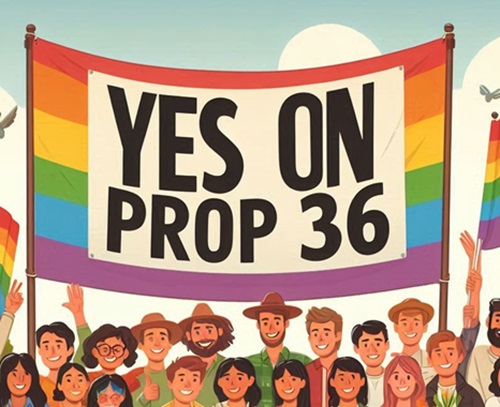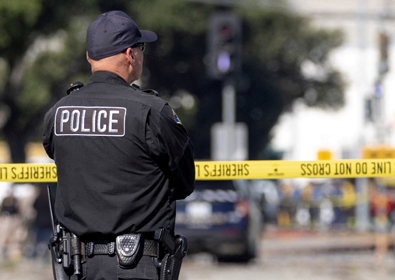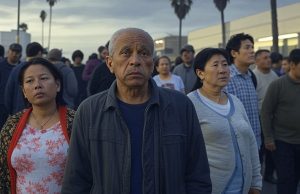“What’s wrong with the LAPD?” This question has become all too common in Los Angeles. Residents complain that police don’t respond to calls, directing them to file reports online instead. Even when serious crimes occur, such as a recent homicide in Koreatown, delayed responses have sparked outrage. Many Korean-American business owners have voiced their frustrations to local media.
This morning, I witnessed a scene that encapsulates the current state of law enforcement in LA. Near the Metro station at Western and Wilshire, four LAPD vehicles were parked, with officers engaged in conversation. Assuming they were there to address the chronic issue of fentanyl use in the area, I approached them.
“Good morning, officer. Are you here to crack down on fentanyl use?” I asked.
“No, that’s not why we’re here,” one officer replied. They explained that this wasn’t their assigned area, so they weren’t aware of any drug activity nearby. This, despite the fact that addicts openly using fentanyl were visible just a few steps away.
When I pointed out the users and formally reported it, the officers acknowledged my report. Later, one of my reporter following up on the incident was told that due to Proposition 47, the police couldn’t take action against these individuals.
The officers’ underlying message was clear: “Why are you asking us to solve a situation created by Proposition 47, which you voted for?”
Proposition 47, passed in 2014, reclassified many nonviolent offenses as misdemeanors, effectively requiring police to release most offenders back onto the streets shortly after arrest. After a decade under this policy, police morale and motivation have deteriorated, distancing them from their role as community protectors and reducing them to mere city employees.
Many immigrants remain disengaged from local politics, either voting based on recommendations from nonprofit organizations or not participating at all. This political apathy has contributed to the current state of affairs in Los Angeles.
Law enforcement agencies operate within the confines of the laws and orders given to them. The paradox we face today is that we’ve voted to reduce penalties for criminals, yet we complain about rising crime rates.
Local elections have immediate and direct impacts on our daily lives. Only with the passage of measures like the proposed Proposition 36, which would reclassify public drug use as a felony, can police effectively intervene in these situations.
Before criticizing the police for inaction, we must educate ourselves on the laws we’re voting for or against. Let’s not be naive. Understanding the implications of our votes is crucial for creating the safe communities we desire.




























































 “고리이자 제시 빌린뒤 부도수표에 폭행까지”
“고리이자 제시 빌린뒤 부도수표에 폭행까지” 




















